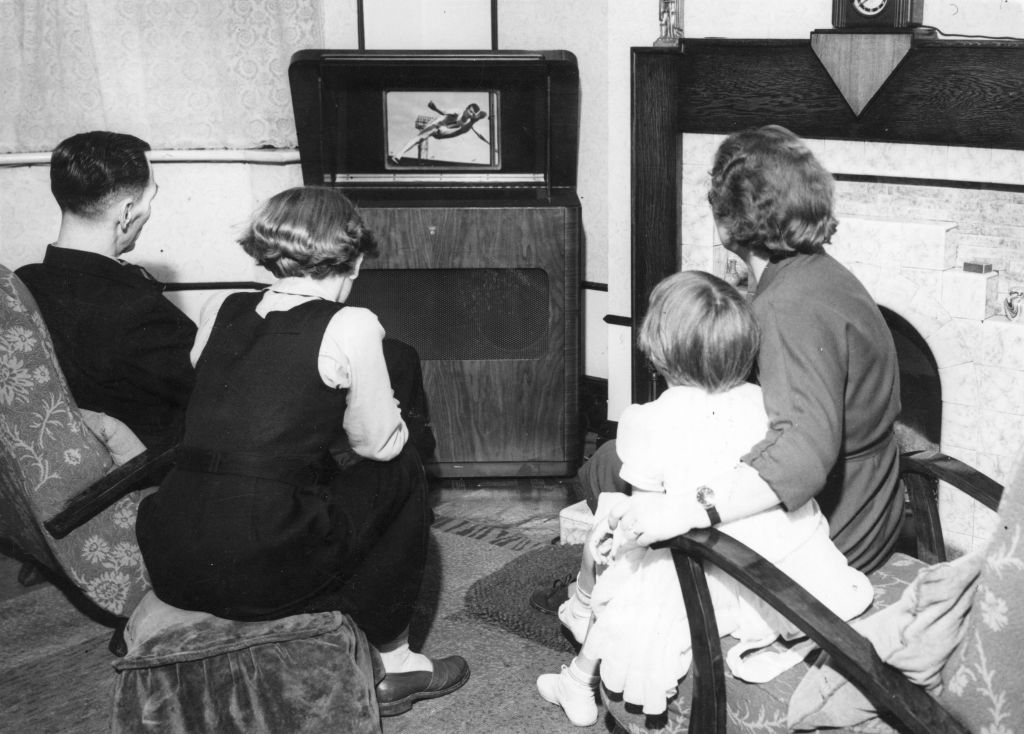16 February 1957: The “Toddlers’ Truce” comes to an end
On Saturday, 16 February, 1957, the “Toddlers’ Truce” – a programme-free hour on TV between 6pm and 7pm – was finally broken.


Get the latest financial news, insights and expert analysis from our award-winning MoneyWeek team, to help you understand what really matters when it comes to your finances.
You are now subscribed
Your newsletter sign-up was successful
Want to add more newsletters?
It's 6pm on the dot. The telly goes blank, and in comes mum to sweep the rugrats off the carpet. So went the logic behind the “Toddlers' Truce”. It provided parents in the post-war years with 60 distraction-free minutes to unstick the kids from the TV and put them to bed.
In those days, the BBC, which was the only broadcaster, prided itself on its social responsibilities. The programmes it produced for children were designed to aid a child's development within the harmonious environment of the family home. If that meant suspending transmission so mum and dad could tear themselves away from the sofa to look after the children, then so be it. Conveniently, it also saved the corporation a few bob.
Then barbarians invaded the televisual landscape. In September 1955, ITV made its inaugural broadcast. The Postmaster General dictated broadcasting policy, so the newcomers had to abide by the Toddler's Truce as well. ITV thought that was grossly unfair. Unlike the BBC, it didn't have a TV licence to fund its programming it had to rely on advertising. So, for them, the Toddlers' Truce was a lost hour of income. The BBC said that exposing young children to advertising would warp their fragile little minds a concept lost on the Americans, where children were not only fair game, but viewed as a critically important consumer group.
Try 6 free issues of MoneyWeek today
Get unparalleled financial insight, analysis and expert opinion you can profit from.

Sign up to Money Morning
Don't miss the latest investment and personal finances news, market analysis, plus money-saving tips with our free twice-daily newsletter
Don't miss the latest investment and personal finances news, market analysis, plus money-saving tips with our free twice-daily newsletter
But it soon became apparent that the BBC's concerns were a lost cause. London School of Economics psychologist, Hilde Himmelweit, and social scientist' Mark Abrams were separately investigating the viewing habits of children. They found that even younger children were watching adult programmes, with violent' westerns and police drama Fabian of the Yard proving special favourites. And given the choice, they preferred to tune in to ITV rather than Auntie Beeb.
On Saturday, 16 February, 1957, the Toddlers' Truce was finally broken. Perhaps sensing change in the air, the BBC decided to broadcast a rock n' roll programme Six-Five Special in its place.
Get the latest financial news, insights and expert analysis from our award-winning MoneyWeek team, to help you understand what really matters when it comes to your finances.

-
 The northern powerhouse city where first-time buyers are snapping up properties
The northern powerhouse city where first-time buyers are snapping up propertiesFirst-time buyers are “casting their nets” wider to find properties that match their budgets and lifestyles. We look at the top areas for first-time buyers.
-
 What the government’s baby boomer retirement data says about the future of pensions
What the government’s baby boomer retirement data says about the future of pensionsA study of the retirement routes of people born in 1958 paints a worrying picture for people’s pension savings
-
 31 August 1957: the Federation of Malaya declares independence from the UK
31 August 1957: the Federation of Malaya declares independence from the UKFeatures On this day in 1957, after ten years of preparation, the Federation of Malaya became an independent nation.
-
 13 April 1960: the first satellite navigation system is launched
13 April 1960: the first satellite navigation system is launchedFeatures On this day in 1960, Nasa sent the Transit 1B satellite into orbit to provide positioning for the US Navy’s fleet of Polaris ballistic missile submarines.
-
 9 April 1838: National Gallery opens in Trafalgar Square
9 April 1838: National Gallery opens in Trafalgar SquareFeatures On this day in 1838, William Wilkins’ new National Gallery building in Trafalgar Square opened to the public.
-
3 March 1962: British Antarctic Territory is created
Features On this day in 1962, Britain formed the British Antarctic Territory administered from the Falkland Islands.
-
10 March 2000: the dotcom bubble peaks
Features Tech mania fanned by the dawning of the internet age inflated the dotcom bubble to maximum extent, on this day in 2000.
-
9 March 1776: Adam Smith publishes 'The Wealth of Nations'
Features On this day in 1776, Adam Smith, the “father of modern economics”, published his hugely influential book The Wealth of Nations.
-
 8 March 1817: the New York Stock Exchange is formed
8 March 1817: the New York Stock Exchange is formedFeatures On this day in 1817, a group of brokers moved out of a New York coffee house to form what would become the biggest stock exchange in the world.
-
7 March 1969: Queen Elizabeth II officially opens the Victoria Line
Features On this day in 1969, Queen Elizabeth II took only her second trip on the tube to officially open the underground’s newest line – the Victoria Line.